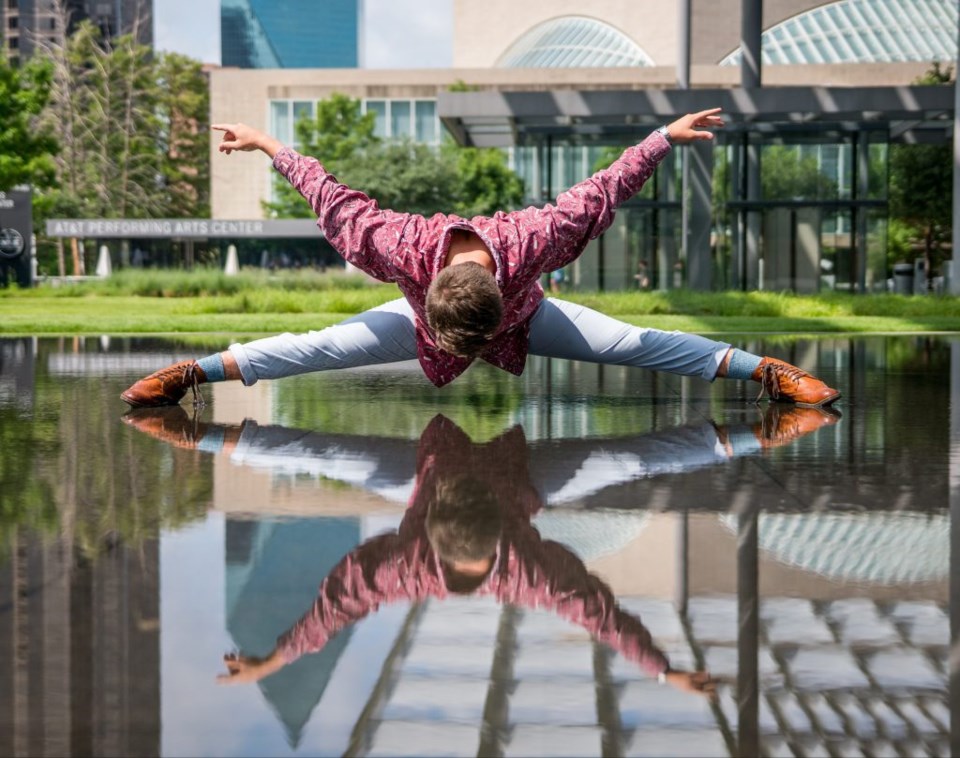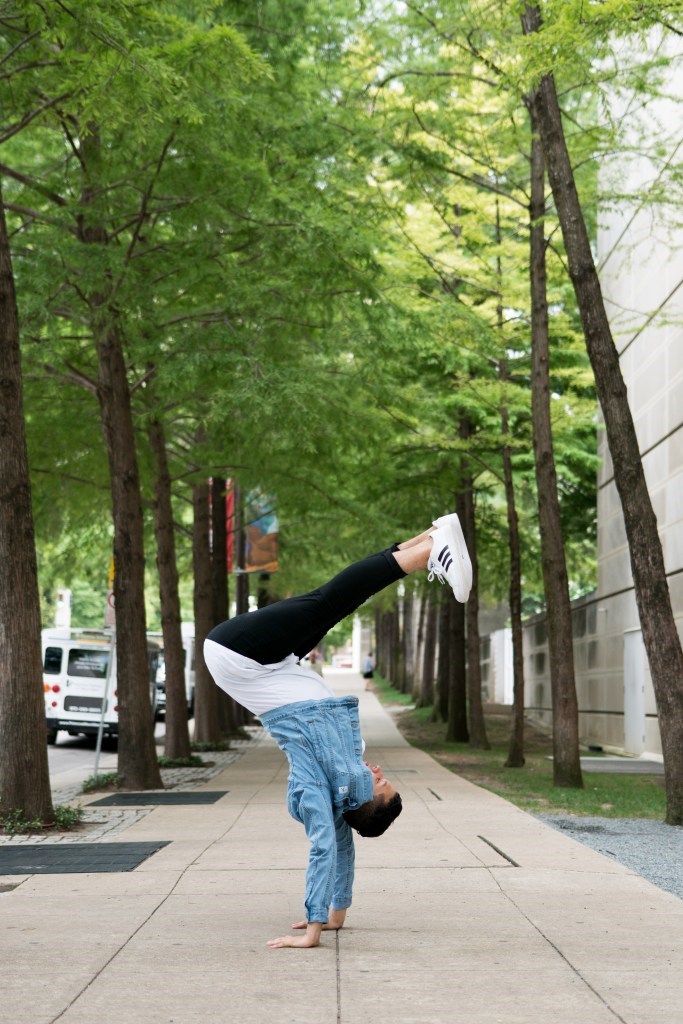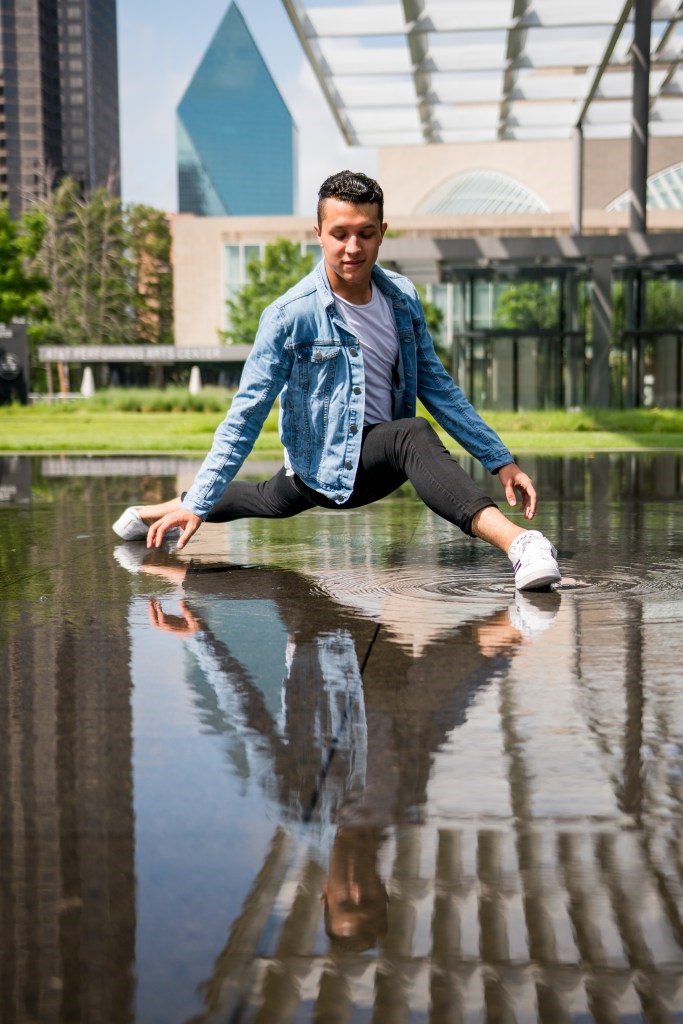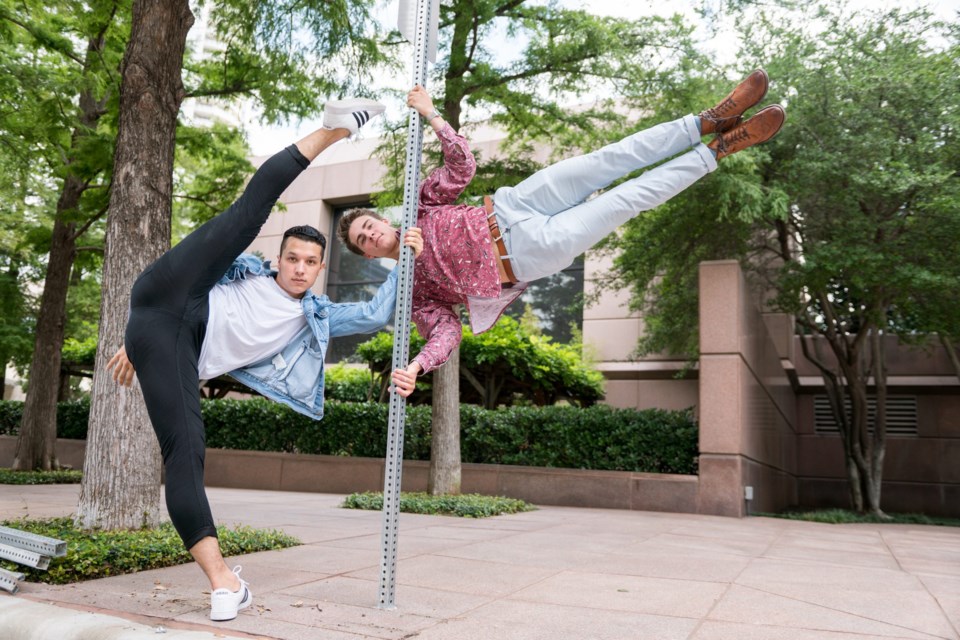Michael Garcia Jr. and Zane Unger are heading to The Juilliard School, but the path there wasn’t so graceful
Michael Garcia Jr. and Zane Unger are part of the “J Five”, a nickname given to the male students from Booker T. Washington High School for the Performing and Visual Arts who will be attending Juilliard this fall. It isn’t an official nickname—Michael personally finds it a bit tacky—but it’s what people have started calling the five of them over the last few months. With only 24 students accepted into the program, 12 men and 12 women, it’s an achievement that’s been many years in the making.
I meet with them at Booker T. in downtown Dallas to talk about their passion for dance, where they find their strength and support, and how they almost didn’t get into Juilliard.
What got you into dance?
Zane: I started when I was two. I was a clumsy baby. My mom thought I would quit around the age of five, but here I am. At first I didn’t want to go to Booker T. because I wanted the high school experience. But after I saw how amazing their dancers were, I knew that’s what I wanted.
Michael: I was a toddler dancer, and after trying different sports [my parents] put me in a dance class when I was seven, just to try it. After my first class I was hooked. We’re fortunate to have gone to Booker T. all four years. I wanted the normal high school experience, but I started having a rough time in middle school with bullying, so I decided to audition and came here as soon as possible.

Bullying?
Z: At [Booker T.], everyone has shared experiences. We’ve all gone through bullying like “Oh, you’re not going to do it, art isn’t going to get you anywhere”. It’s nice being around positive energy at school. I grew up in a very sports-integrated town [outside of Dallas]. If you’re not in sports, you’re not anybody, and I wasn’t in sports. I was in dance, which is a sport, but it’s also an art form. Some people didn’t understand that.
M: Growing up in [the suburbs], it’s the ideal Texas city; everyone plays football and attends the games. I was the only guy dancer that lived there, and they were used to the same cookie-cutter person. Some people just don’t understand people who are different, especially at that age.
Z: It made us stronger going through these experiences and deepened our art form.
Do you have support at home for your dancing?
M: My parents haven’t always been supportive. They got divorced when I was four years old, so I was living in a single parent home. My dad was originally not supportive of [dancing] at all. He was all about the glory days, quarterback of the football team kind of dad. My mom was supportive originally, but towards the end I think…things just didn’t turn out so well in terms of her supporting me. I’ve received a lot of support from my peers, teachers at school and my studio.
Z: I’ve been very fortunate to have my mom….she grew up in poverty, so she only did sports through school. She tries to give me the best of everything, and she pays for everything. She really molded me into the man and the dancer that I am today.

What was trying out for Juilliard like?
M: It’s the longest and most grueling audition process; it’s six hours long. There were about 50 kids trying out here in Dallas, and people from all over the world come to try out in the five U.S. auditions. Everyone walks in super nervous. We do a ballet class, and then people get cut. It went from 50 to 15 after the first round. Then we took a modern class, and they cut five. From there you do a solo, and then learn a piece of choreography to see how fast you pick it up and how well you do all the details. Finally you have an interview. From the solo round to the end, there were 10 of us and they didn’t cut anyone.
Z: The thing is, they didn’t tell us that they weren’t going to make any more cuts. The judge comes into the waiting room…and we’re just shaking. Right before our last round of [potential] cuts the director said, “This is usually the worst cut of them all.” We’re all just on edge. Then he says, “No one got cut. Great!”
M: I was so mad, so mad. Like that’s just rude, that’s not funny at all. [Michael and Zane laugh.]
How much training do you do every week?
M: At school we do three hours a day in classes plus four hours after school in rehearsal, so about 20 hours a week at school. Sometimes they bring in a guest choreographer and we learn a new 10 to 20 minute piece. We’d stay at school until 9 or 9:30 p.m. sometimes. I counted once and I had danced 55 hours that week.
Z: This is the closest [education] you can get in terms of it being like the “real world”. Some days you walk in and you’re just like, “I don’t want to do this.” Your teachers just say, “Go in there, and get ready.” That pushes you. It helped me at the audition, because there were points where I didn’t know if I could go any further. You just dig to find the energy.
M: You just do it. Like that sounds bad, but you really just—Nike patent pending—you “Just do it”. You look at yourself in the mirror, and tell yourself to push through. At the audition, around that third round, I danced almost nonstop for about four hours, and I still had two more rounds to go. You ask, “Is this something I really want?” And you just push.

What was it like the moment you got accepted?
Z: Our moments are very similar. We were on spring break in different cities with other dance friends. [Michael and I] found out we were wait-listed while our friends, Todd and Cade, found out they got accepted. Both of us were like…
M: We were happy for our friends but still kinda sad. We were wait-listed, so that’s an accomplishment because we didn’t get rejected. We got fortunate; some people were declining their positions, so we knew something was coming.
Z: I hadn’t accepted a school yet and was waiting for May 1 which is National Acceptance Day. The Saturday before May 1, I got the call. I was eating cereal and I choked when [the admissions director] called me. Honestly, I had given up. You give so much at the beginning; I hope, I hope, I hope…and it faded away. But then it happened!
M: I found out two days after Zane. I had done the math, so I was kind of hoping for the call. We had just finished the first part of ballet class, and I saw a missed call from New York on my phone. I knew I had just got into Juilliard. I sat down in the middle of the hallway for a few minutes until it set in. A couple of weeks earlier, I accepted a really amazing school and had given up on the idea of going to Juilliard. It took me about a week to make my decision. I’m not in the best financial situation, so I was trying to decide what’s the best financial, artistic and personal decision. Where am I going to be happiest? I knew I wanted to go to the school I’ve been dreaming about my whole life. We’ve been on cloud nine ever since.





